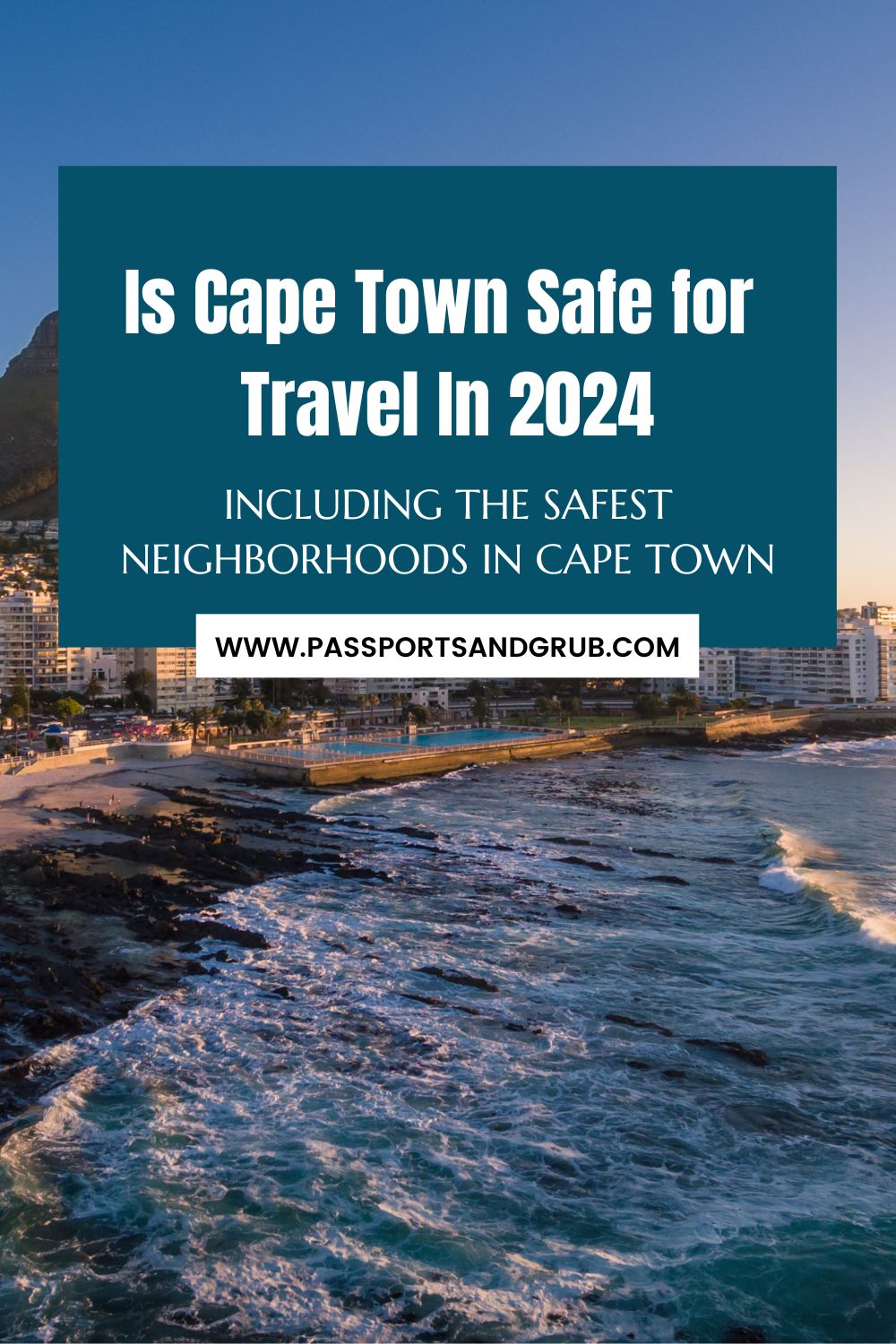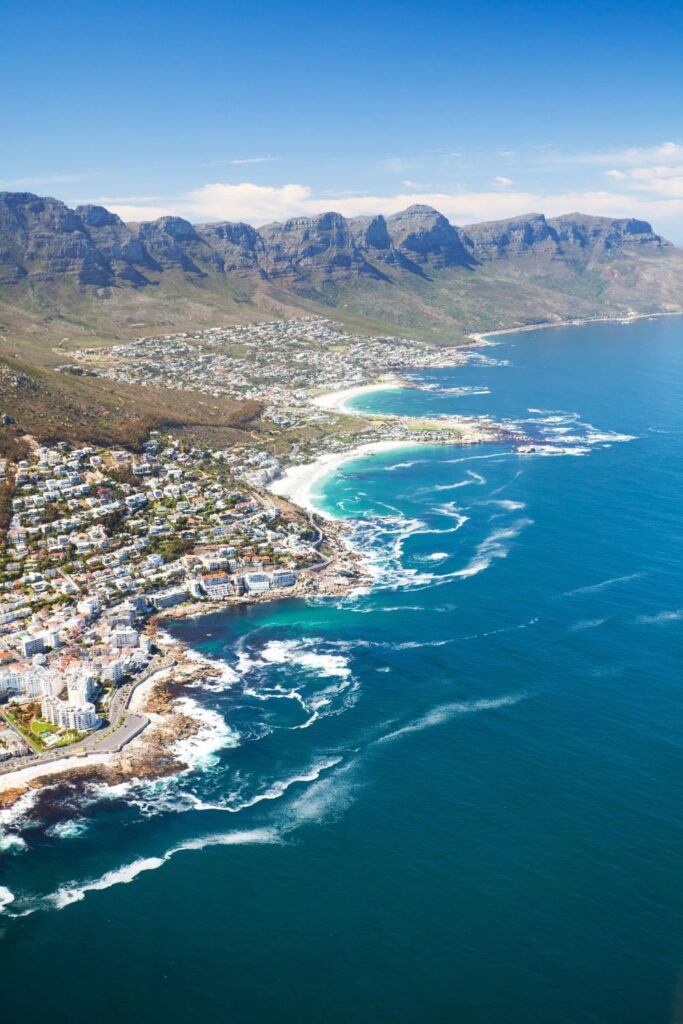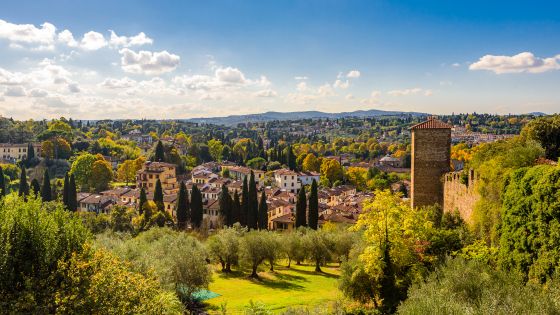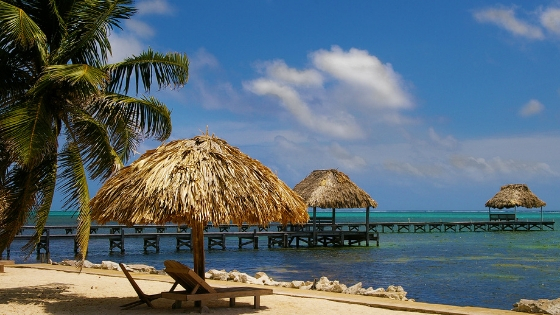Is Cape Town Safe for American Tourists?
Is Cape Town safe? That was one of the first questions I asked myself when planning my trip to South Africa. I had heard mixed opinions and read plenty of headlines, but I wanted to see the city for myself and understand what it truly felt like.
When I write about travel safety, I speak from firsthand experience. I pay close attention to the things that matter, like how it feels walking through different neighborhoods, how locals treat tourists, and what the energy is like during the day and at night.
I also do my research before every trip. That includes reading travel advisories, checking local news, and having real conversations with people who live there.
If Cape Town is on your list and you’re looking for honest, practical insight, this guide will help you feel prepared and more confident about your travel plans..
According to the U.S. Department of State, Cape Town falls under a Level 2 travel advisory, which means “exercise increased caution” primarily due to petty crimes like pickpocketing and theft, particularly after dark and in more isolated areas.
But what no one warns you about are the microaggressions. The stares. The polite but clipped interactions. The way I felt hyper-visible in white spaces, looked at like a tourist, not a guest.
There’s a subtle discomfort you carry around when you realize you’re being tolerated, not welcomed.
I’ve traveled to over 30 countries, and while many had their own issues, Cape Town was the only place that felt like rural Alabama in the 1950s, with a gorgeous backdrop, underlying tension.
This blog post is going to keep it real. I’m not here to scare you, but I am here to help you stay informed and protect your peace while traveling.
The links in this post may be affiliate links. That means that if you click them and make a purchase, this site makes a commission. It will have no impact on the price you pay or the experience of your purchase.
🛡️ Want to travel smarter, not scared? Grab my Comprehensive Travel Safety Guide, where I break down safety tips by region, what to pack, and how to move like a local (while staying protected like a pro). It’s $19.99 and will change how you travel solo or with your crew.
➡️ Let’s unpack the truth about Cape Town, what you need to know before you go, how to stay safe, and how to mentally prepare for the reality behind the pretty postcards.

Is Cape Town, South Africa Safe
Cape Town is stunning. The mountains, the ocean, the food? Chef’s kiss. But like any major city, it’s got layers, and not all of them are pretty.
Yes, there’s crime. Yes, there are safety concerns. But if you’re a Black woman traveling to Cape Town, there’s another layer folks don’t talk about enough and that’s how it feels to move through the city when you don’t exactly blend in.
From a safety standpoint, most of the crime that affects tourists in Cape Town is petty, think pickpocketing, scams, and car break-ins.
You’re not likely to run into issues if you stick to the popular tourist areas like the V&A Waterfront, Camps Bay, and Sea Point.
Just don’t get too comfortable. Keep your bag close, your cash minimal, and your phone off the table when dining outdoors.
And please don’t be out here taking midnight strolls or hopping on public transport after dark. Uber is your best friend here.
Sure! Here’s a rewritten, SEO-optimized version of that section that directly answers the user query: “Is Cape Town safe for white people?”—using your tone, backed by data, and made to rank:
Is Cape Town Safe for White People?
If you’re wondering whether Cape Town is safe for white tourists, the answer is a resounding yes!
Cape Town is one of the most visited cities in South Africa and caters heavily to international tourism.
White visitors often feel relatively safe in popular areas like the V&A Waterfront, Camps Bay, and the Constantia wine region.
These areas are built around tourism and are well-patrolled, with high-end accommodations, security, and tour infrastructure that make visitors feel comfortable.
But it’s not all smooth sailing. According to a recent travel safety survey of American travelers, South Africa ranked 40th out of 42 countries for perceived safety, just above India and Mexico.
A composite safety index from GeoSure placed South Africa 22nd out of 32 countries, while Numbeo ranked it 142nd out of 146 for overall safety, and the World Economic Forum placed its cities 29th out of 32.
Despite those rough numbers, the U.S. State Department gives South Africa a Level 2 Travel Advisory “exercise increased caution.” That means visitors should be aware of risks such as armed robbery, carjackings, and theft, particularly in less-secure areas.
These threats aren’t necessarily targeted at white people, but rather at anyone perceived to be a tourist or carrying valuables.
Bottom line: White tourists in Cape Town feel extremely safe when sticking to guided tours, private transportation, and tourist-friendly neighborhoods.
Unsafe Areas in Cape Town
Some areas are best left off your itinerary, not because they lack culture or interest, but for your peace of mind and safety.
Here’s my personal opinion: Township areas generally have higher crime rates and aren’t set up for tourists. I am not trying to scare you; I am just keeping it honest. Places to be cautious about include:
- Cape Flats (southeast of the city center)
- Langa and Nyanga (the city’s oldest townships)
- Kraaifontein (a northern suburb)
These spots have rich histories and vibrant communities but face complex issues. As a visitor, especially if you’re traveling solo or with kids, it’s best to admire them from a distance.
Before you book your stay, do some research. Look for neighborhoods that match your vibe and make you feel comfortable. You want to wake up excited for your day, not worried about your surroundings.
Safest Neighborhoods in Cape Town
Cape Town’s safest neighborhoods aren’t just secure – they’re slices of paradise waiting to be explored.
From the buzzing waterfront, where you can shop till you drop to charming seaside villages where time seems to slow down, these areas offer the perfect blend of safety and unforgettable experiences.
Picture yourself strolling through leafy suburbs with world-class wineries at your doorstep or watching the sunset from a trendy rooftop bar in the heart of the city.
Whether you’re a solo traveler seeking adventure, a couple looking for romance, or a family in need of fun and peace of mind, Cape Town’s got you covered.
Ready to discover your perfect home away from home? Here are the top 10 neighborhoods that’ll make you fall head over heels for the Mother City:
- City Bowl
- Central, vibrant, and well-patrolled
- Great for first-time visitors
- Close to major attractions
2. V&A Waterfront
- Highly secure, touristy area
- Lots of shopping, dining, and entertainment
- Beautiful harbor views
3. Camps Bay
- Upscale beachfront neighborhood
- Stunning beaches and mountain views
- Safe for evening strolls
4. Green Point
- LGBTQ+ friendly area
- Close to the stadium and waterfront
- Trendy restaurants and cafes
5. Sea Point
- Family-friendly with a lovely promenade
- Mix of locals and tourists
- Great for morning jogs or sunset walks
6. Clifton
- Exclusive, quiet area
- Beautiful beaches
- Very safe, but can be pricey
7. Constantia
- Suburban feel with vineyards
- Perfect for wine lovers
- Peaceful and secure
8. Kalk Bay
- Charming fishing village vibe
- Artsy community with great seafood
- Safe for exploring on foot
9. Newlands
- Leafy, upmarket suburb
- Close to Kirstenbosch Botanical Gardens
- Safe and family-friendly
10. Bloubergstrand
- But further out, but it is very safe
- Famous for its view of Table Mountain
- Great for kitesurfing and beach activities
Cape Town vs. Johannesburg: Which City Do People Feel Safest in?
Citizens were asked about 12 areas of concern and rated their feelings on a scale of 1 to 100, with the latter figure being the worst possible experience. The average total acts as the official “crime index number.” Here’s how the Mother City and Jozi fared:
| City | Cape Town | Johannesburg |
| Level of crime | 83.65 | 89.26 |
| Problems with drug users/dealers | 81.29 | 81.00 |
| Fears of home burglaries | 70.67 | 79.85 |
| Fears of being mugged | 73.27 | 81.36 |
| The feeling of “increased crime” since 2017 | 65.36 | 77.79 |
| Concerns about being attacked | 65.88 | 76.12 |
| Worried about being verbally abused | 56.24 | 64.04 |
| Worried about being a “hate crime” victim | 52.00 | 66.68 |
| Problems with drug users / dealers | 74.89 | 71.62 |
| Problems with vandalism | 76.28 | 82.83 |
| Issues with violent crimes | 79.84 | 88.85 |
| Issues with bribery and corruption | 83.94 | 91.82 |
| Overall “crime index” score | 72.98 | 80.74 |
How to Stay Safe in Cape Town
South Africa’s crime statistics certainly do nothing to put tourists at ease. However, these stats are often viewed out of context. We believe Cape Town – one of the most beautiful cities in the world – has a lot to offer tourists.
Yes, crime exists. Crime may affect you if you are in the wrong place at the wrong time. Tourists sometimes, unfortunately, are mugged in the city, and it happens that valuables are stolen. But this can happen anywhere in the world.
If Cape Town were a no-go holiday destination due to crime, it would not continue taking place on listings of the best cities around the world and receive noteworthy accolades and awards every year.
Serious crimes such as murder and rape are usually restricted to the poverty-stricken areas around Cape Town, which tourists best avoid.
Most tourists never get exposed to dangerous areas, which are nowhere near the popular holidaymakers’ spots, such as the Atlantic Seaboard.
Your streetwise attitude will go a long way toward ensuring your safety in Cape Town. What you carry while sightseeing will also play an important role in your experience of how safe Cape Town is.
If you follow a few simple rules, as discussed in this guide, you will likely find Cape Town as safe as most popular tourist destinations.
This is the number one question I was asked when I told people I was traveling to Cape Town solo: Are you sure South Africa is safe, specifically, is Cape Town safe?
Cape Town has a high crime rate, so you must be aware of your surroundings.
Muggings, pickpockets, scams, and robberies do happen, so it’s fitting that you need to be as prepared as possible before your trip.
But that doesn’t mean you shouldn’t travel to Cape Town.
Cape Town is a beautiful city, and you should not allow misconceptions to prevent you from traveling to South Africa.
Researching the destination, and I also suggest joining Facebook groups dedicated to South Africa and Cape Town to learn from other travelers, which is another way to protect yourself.
While safety in Cape Town is a valid concern, most of the violent crimes happen in isolated areas.
Use your common sense and avoid remote areas if you are alone, but also be aware that big cities have a higher crime rate. Your Gov website will have up-to-date info as well.
ATMs and banking
Do not draw money at ATMs at night, especially not on a deserted street. Instead, visit one of the many upmarket shopping centers and draw cash where security guards are on duty.
Never allow a stranger to “assist” you at an ATM. If you need assistance, wait for banking hours and do your business inside the bank.
If you need to visit a bank or foreign exchange counter, you can do your banking business at a shopping complex such as the V&A Waterfront or Gardens Centre.
Once you have withdrawn cash, do not flaunt it; put it away safely before leaving the ATM. Also, keep an eye on any suspicious-looking individuals.
Driving a car
It is generally safe to drive in Cape Town. A few common sense rules apply, such as keeping the car windows rolled up while driving in the City Centre and ensuring the car doors are locked before setting off on your journey.
Do not display handbags, cell phones, and wallets on the passenger seat or anywhere it is in the eye of passers-by. Instead, lock your valuables in the car’s boot.
Public transportation In Cape Town
Cape Town has many safe taxi services, such as Intercab, Unicab, and Rikkis Taxis. Many tourists also use Uber.
As a word of caution, only get into a car, taxi, or bus when you feel safe. If you have doubts about the intention of the driver and/or other passengers, trust your instinct and do not get into the vehicle.
Cape Town’s Metrorail train is generally not recommended for tourists. The MyCiti bus service is safe and reliable.
However, as in any other city, be aware of who is on the bus with you and keep your belongings close to you.
Tours in Cape Town
During my visit to Cape Town, I discovered that using well-known tour companies like Viator greatly improved my experience.
These established operators organized informative and safe excursions showcasing the city’s best and surroundings.
By booking through a trusted platform, I gained access to a wide range of activities, from wine tasting in the nearby Stellenbosch region to shark cage diving off the coast.
The professional guides provided valuable insights into local history, culture, and wildlife, enriching my understanding of this diverse South African destination.
I appreciated that these reputable companies maintained high safety standards and offered reliable transportation, allowing me to fully immerse myself in the beauty of Cape Town without worrying about logistical details.
Travel documents
Protect your travel documents by locking them in your room’s safe before you venture out. Carry a certified copy of your passport if needed on your travels.
Keep a spare set of certified copies in your suitcase to ensure you have identification in case your passport is lost or stolen.
South Africa Visa Requirements for U.S. Citizens
American citizens can visit South Africa visa-free for up to 3 months. US citizens are visa-exempt for South Africa for the following purposes:
US Citizens who plan to visit South Africa should first check if they require a South African visa. While a visa for South Africa for US nationals is not necessary in all cases, some American travelers will be required to obtain a travel document.
The government of South Africa recently introduced a new visa process for 14 different nationalities. It is designed to speed up the visa system for South Africa and remove the need to apply from an embassy or consulate.
While a South African eVisa application for US citizens is not yet available, the online visa program may be expanded to Americans. However, at the moment, several other types of South African visas are available for US passport holders.
Additional Safety for Visiting Cape Town
Following these basic travel safety tips is always a good idea, regardless of the destination. Follow these tips while traveling to South Africa, along with the following Cape Town travel warning:
- Steer clear of spots with a bad reputation, known gang activity, or places that give you bad vibes. Stick to well-traveled places.
- Check-in with friends and family back home as often as you can. Ensure someone knows where you’re at and when you expect to check in next.
- Be aware of your surroundings. This is a good rule of thumb in general, but it’s especially important when traveling alone.
- Don’t drink too much. Know your limits. Don’t put yourself in a vulnerable position.
- Only use ATM machines that are found at reputable local banks or those at your resort.
- Do not wear expensive jewelry or watches that might attract unwanted attention.
- Avoid taking excessive amounts of cash out and about with you.
Stick with your travel companions rather than splitting up, especially when out late at night. If you plan to drive, make it a point to travel during daylight hours.
Taking a taxi at night is always a great idea to be safe and know which areas to avoid in Cape Town.
South Africa Travel Advisory
South Africa – Level 2: Exercise Increased Caution
As of July 18, 2024, some areas around Cape Town International Airport in South Africa are considered less secure and there is an increased risk of attack on secondary roads. The GOV.UK recommends staying on the M3 and N2, avoiding the R300, and staying on the “airport approach road” (exit 16 on the N2). They also advise avoiding Borcherd’s Quarry Road, which leads to Nyanga
Read the country information page for additional information on travel to South Africa.
If you decide to travel to South Africa:
- Read the Department of State’s COVID-19 page before planning any international travel, and read the Embassy COVID-19 page for country-specific COVID-19 information.
- Avoid walking alone, especially after dark.
- Avoid visiting informal settlement areas unless you are with someone familiar with the area.
- Do not display cash or valuables.
- Drive with doors locked and windows closed.
- Always carry a copy of your U.S. passport and visa (if applicable). Keep original documents in a secure location.
- Conserve water and follow local guidance on water use for tourists and Save Like a Local.
- Check the City of Cape Town website for up-to-date information and guidance on how to manage water consumption.
- Refer to Nelson Mandela Bay’s website for updates on water restrictions in effect in the Eastern Cape.
- Monitor water levels at the City of Cape Town’s Water Dashboard.
- Enroll in the Smart Traveler Enrollment Program (STEP) to receive Alerts and make it easier to locate you in an emergency.
- Follow the Department of State on Facebook and Twitter.
- Review the Country Security Report for South Africa.
- Prepare a contingency plan for emergencies. Review the Traveler’s Checklist.
- Visit the CDC page for the latest Travel Health Information related to your travel.
Assistance for U.S. Citizens
U.S. Consulate General Johannesburg
1 Sandton Drive (opposite
Sandton City Mall)
Johannesburg 2196
South Africa
- Telephone
- +(27)(11) 290-3000 (from South Africa 011-290-3000)
- Emergency
- +(27) 79-111-1684 / 079-111-1684 (from within South Africa)
- Fax
- +(27)(11) 884-0396 / 011-884-0396 (from within South Africa)
- ACSJohannesburg@state.gov
- Website
- U.S. Consulate General Johannesburg
Safest Hotels Near Cape Town
From lavish accommodations to unparalleled service and awe-inspiring views, these hotels offer an unforgettable experience for discerning travelers. Join us as we discover the crème de la crème of luxury hotels in Cape Town.
- The Table Bay Hotel: Nestled at the Victoria & Alfred Waterfront, The Table Bay Hotel stands as an iconic symbol of elegance. Its magnificent architecture, luxurious rooms, and personalized service make it a favorite among discerning travelers. Indulge in fine dining, rejuvenate at the spa, and relish breathtaking views of Table Mountain and the Atlantic Ocean.
- Cape Grace Hotel: Exuding charm and sophistication, Cape Grace Hotel overlooks the vibrant marina and offers an intimate atmosphere. Its elegantly appointed rooms, personalized butler service, and exceptional dining options ensure a memorable stay. Stroll along the waterfront or unwind with a cocktail while admiring the picturesque Table Mountain.
- The Silo Hotel: Housed in a converted grain silo with a distinctive design, The Silo Hotel is a testament to Cape Town’s artistic spirit. Each room is adorned with stunning contemporary art and offers unparalleled luxury and opulence. Enjoy panoramic views of the city and harbor, savor delectable cuisine, and unwind in the rooftop pool, captivated by the mesmerizing sunset.
- One&Only Cape Town: Immerse yourself in the epitome of luxury at One&Only Cape Town. Situated amidst the cosmopolitan V&A Waterfront, this hotel boasts exquisite rooms, world-class amenities, and exceptional service. Pamper yourself at the award-winning spa, indulge in gastronomic delights, and bask in the beauty of Table Mountain from your private balcony.
- Belmond Mount Nelson Hotel: Steeped in history and surrounded by lush gardens, Belmond Mount Nelson Hotel exudes timeless elegance. This pink-hued oasis offers luxurious rooms, exquisite dining experiences, and a tranquil spa. Unwind by the sparkling pool, explore the vibrant city, or simply revel in the tranquility of this iconic landmark.
- The Twelve Apostles Hotel and Spa: Perched on the outskirts of Cape Town, The Twelve Apostles Hotel and Spa showcases unparalleled natural beauty. Nestled between the Twelve Apostles mountain range and the Atlantic Ocean, this luxurious retreat offers breathtaking views, elegant rooms, and a world-class spa. Immerse yourself in nature, enjoy gourmet cuisine, and experience ultimate relaxation.
nbsp;
Additional Useful Resources to Help You Stay Safe and Explore Cape Town
- Expedia is the best website for finding cheap flight deals and hotels to and from Cape Town.
- Booking.com: This is my favorite hotel booking website, as it consistently has the best selection and prices.
- Hotels.com is another excellent hotel booking website for finding fabulous Cape Town accommodation.
- Tripadvisor: this famous review website now allows you to book accommodation and tours direct as well.
- Get Your Guide: my favorite resource for finding tours and activities in Cape Town and elsewhere.
- Viator: another excellent option for finding fun things to do, skip-the-line tickets, and fabulous tours in Cape Town.
DO YOU NEED TRAVEL INSURANCE?
Most people have questions about where to go for medical care in an emergency. First, I should note that if you’re on spring break, chances are slim that you’ll need emergency care.
Still, better safe than sorry! The good news is that some of the most beautiful cities in South Africa—like Capetown and Durban —also happen to be home to some of the best hospitals and clinics in South Africa.
I can’t say this enough, but please get insurance when traveling to South Africa! Even if you only go on a short trip, you should always travel with insurance.
✈️ Get Travel Insurance NOW! Travelex Is my preferred Insurance
Have fun while visiting South Africa, but take it from someone who has racked up thousands of bucks on an insurance claim before: you need it.
Make sure to get your insurance before you head off on an adventure! I highly recommend Travelex Insurance.
FAQs About Safety in Cape Town
Is Cape Town safe for solo female travelers?
Cape Town can be a safe destination if you’re street smart and stick to the tourist zones. But I won’t sugarcoat it—being a solo Black woman there adds another layer.
Move like you would in any big city: stay aware, don’t overshare, and vet every driver, guide, and restaurant like your safety depends on it, because it does.
What areas should I avoid in Cape Town?
Skip the townships unless you’re on a reputable, guided cultural tour (not one that treats poverty like a photo op). Avoid walking alone in downtown Cape Town at night, and stay out of neighborhoods like Nyanga and Delft both have high crime rates.
Carjackings can happen in more remote spots, so use Uber or arrange transportation through your hotel or guide.
Is Cape Town safe at night?
Not really. The views may be romantic, but once the sun sets, it’s best to be back at your hotel or out with a trusted guide or group.
Don’t walk alone at night. Don’t rely on public transportation after dark. And don’t be out here thinking your “big city intuition” alone will protect you.
What’s the safest way to get around Cape Town?
Uber is the easiest and most reliable option. It’s safer than local taxis and more predictable. If you rent a car, keep your doors locked, avoid driving at night, and don’t leave valuables visible.
Parking attendants (even the unofficial ones) are common tip them a few rand and keep it moving.
Pros & Cons of Visiting Cape Town as a Black Traveler
| Pros | Cons |
|---|---|
| 🌍 Absolutely breathtaking landscapes – Table Mountain, Cape Point, wine country, and beaches all within reach. | 🙄 Microaggressions and racial tension – Especially from white South Africans in upscale areas. |
| 🍷 The food and wine scene is unmatched – And reasonably priced for luxury-level experiences. | 🚨 Petty crime is real – Pickpocketing, ATM scams, and car break-ins are common. |
| 📸 Instagram-worthy moments everywhere – You’ll fill your camera roll in a day. | 🚫 Nightlife isn’t always safe for solo travel – Better with a crew or vetted local guide. |
| 🤝🏾 Growing number of Black expats and entrepreneurs – There is a community if you know where to look. | 💬 Tourist traps and scams – From overpriced taxis to fake guides. |
| ✨ Affordable luxury – 5-star accommodations and experiences without the price tag. | 🔒 Some neighborhoods are a hard no – And you may not realize it until it’s too late. |
If this helped you, share it with your girls, your group chat, your mama, whoever you travel with. We need honest guides out here.
👉🏾 Don’t forget to grab the Travel Safety Guide. Trust me, you’ll feel so much better having a plan.
✨ Travel smart, not scared.
Conclusion: Is it Safe to Travel to Cape Town, South Africa
Yes, Cape Town, South Africa, is safe!
Physically? In most tourist-friendly areas, yes, if you’re aware of your surroundings and move with intention. Emotionally?
That’s where things get complicated, especially if you’re a Black traveler. The microaggressions, the subtle shifts in how you’re treated, it’s real. And it can catch you off guard if no one prepares you for it.
But let me be clear: Cape Town is worth visiting. The culture, the views, the experiences? Unforgettable. You just need to travel with your eyes open and your instincts dialed in.
I want you to experience the beauty without being blindsided by the undercurrent.
💡 Need help getting travel-ready?
👉 Grab my Comprehensive Travel Safety Guide eBook – It’s just $19.99 and will change how you travel
👉 Shop my Amazon Safety Must-Haves – From TSA-approved locks to discreet travel pouches
👉 Get Trusted Travel Insurance – Because peace of mind is priceless
☕️ Enjoyed this post? Buy me a coffee to support more content like this!

ADDITIONAL ARTICLES FOR EXPLORING THIS BIG OLE WORLD
Is Johannesburg Safe for American Tourists
I would love to hear your thoughts on whether it is safe to travel to Cape Town and how you feel about the South Africa travel warning, so leave me a comment on Facebook, Twitter, or Instagram.
ARE YOU ALSO ON PINTEREST?
Why not save this post to your Pinterest board for later? I am also on Pinterest so feel free to follow Passports and Grubboards and get the latest pin directly.









5 Comments